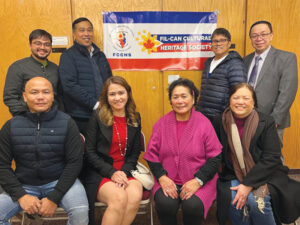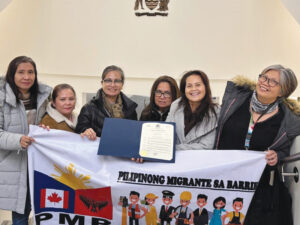Canada’s national Filipino community leaders have a tough challenge in front of them as the Trudeau Liberal government wrestles with key changes to immigration policy.
It’s vital that the needs and aspirations of Filipino newcomers to Canada – whether as immigrants or temporary foreign workers – are part of the national debate.
After a massive upheaval in Canada’s immigration policy under the Conservatives, who saw immigration more as a temporary labour force supplement than a nation-building program, change is in the air.
Prime Minister Trudeau is calling on other nations to follow Canada’s example by welcoming many more refugees. Immigration minister John McCallum says he wants to increase immigration numbers above this year’s level of 300,000.
McCallum has also proposed rolling back changes made to the Temporary Foreign Worker program by the outgoing Conservatives, reforms that were intended to reduce Canada’s reliance on overseas workers and reduce employer abuses.
How will all these changes fit together when most Canadians – who have no idea how many immigrants come to our country every year – have indicated in a national poll that they want no increase?
For the most part, Filipino newcomers to Canada have to travel a long and difficult journey through the Temporary Foreign Worker program or the live-in caregiver program before finding a pathway to immigration and permanent residency. That has to change.
Will changers to the Temporary Foreign Worker program make that road easier? Will the new government rules give workers in those jobs more protection against employer abuses and substandard living conditions? Equally importantly, will new government policies widen access to family reunification? This is the quickest, most efficient and humane way to expand immigration arrivals and improve the success of newcomers.
The City of Vancouver is vitally interested in the answers to these questions and how the leaders of our diverse newcomer communities would like to see them answered.
Last week’s council meeting heard of the scores of initiatives our Vancouver Immigration Partnership program has identified to increase the success of newcomers.
Unfortunately, this program is not available in every community in BC, nor is funding guaranteed over the long term.
A dramatic improvement to settlement services at the front line – in our country’s municipalities – should be part of any new program.
The incredible contribution made by the Filipino community in every walk of Canadian life – health care, tourism, agriculture, food services and many more – must be reflected in positive new initiatives by our national government.
I look forward, as does Mayor Gregor Robertson, so hearing the community’s perspective on these issues.
By Geoff Meggs








